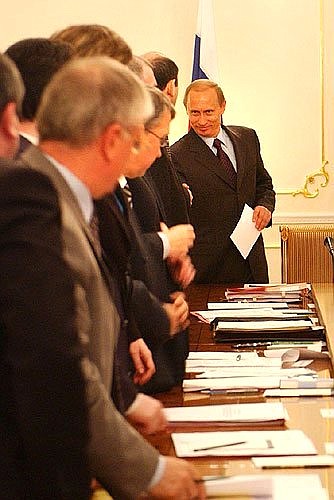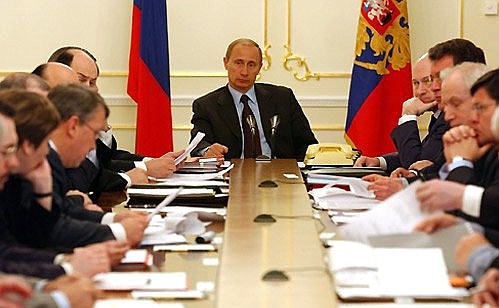Speaking at the meeting, President Putin said that a series of steps to optimise the system of military-technical cooperation had been taken in the recent period: the legislative base was improved, some of the companies were allowed to sell their products directly to consumers and federal agencies began coordinating their efforts in military-technical cooperation more effectively.
All this helped to eliminate excessive departmental barriers and improve performance in general. Last year, exports totaled $4.82 billion, or $500 million more than planned.
But some problems still remain. The President drew attention to the fact that different companies showed different results. In 2002, most of the receipts came from Rosoboronexport, with good returns reported by the Instrument-Making Design Bureau, the Machine-Building Research and Production Association and MiG corporation. Other exporters, however, failed to meet even half of their expectations.
Aviation technology is still the main item of Russian military exports. Last year, it accounted for almost 70% of the total, the President said. At the same time, there were good prospects for ground and naval weapons. President Putin suggested expanding the range of exported armaments by including hi-tech products.
He said that the Presidential Executive Office now had a new staff member specially concerned with military-technical cooperation, while the Government would soon appoint another deputy prime minister to deal with matters of military and technical cooperation.

